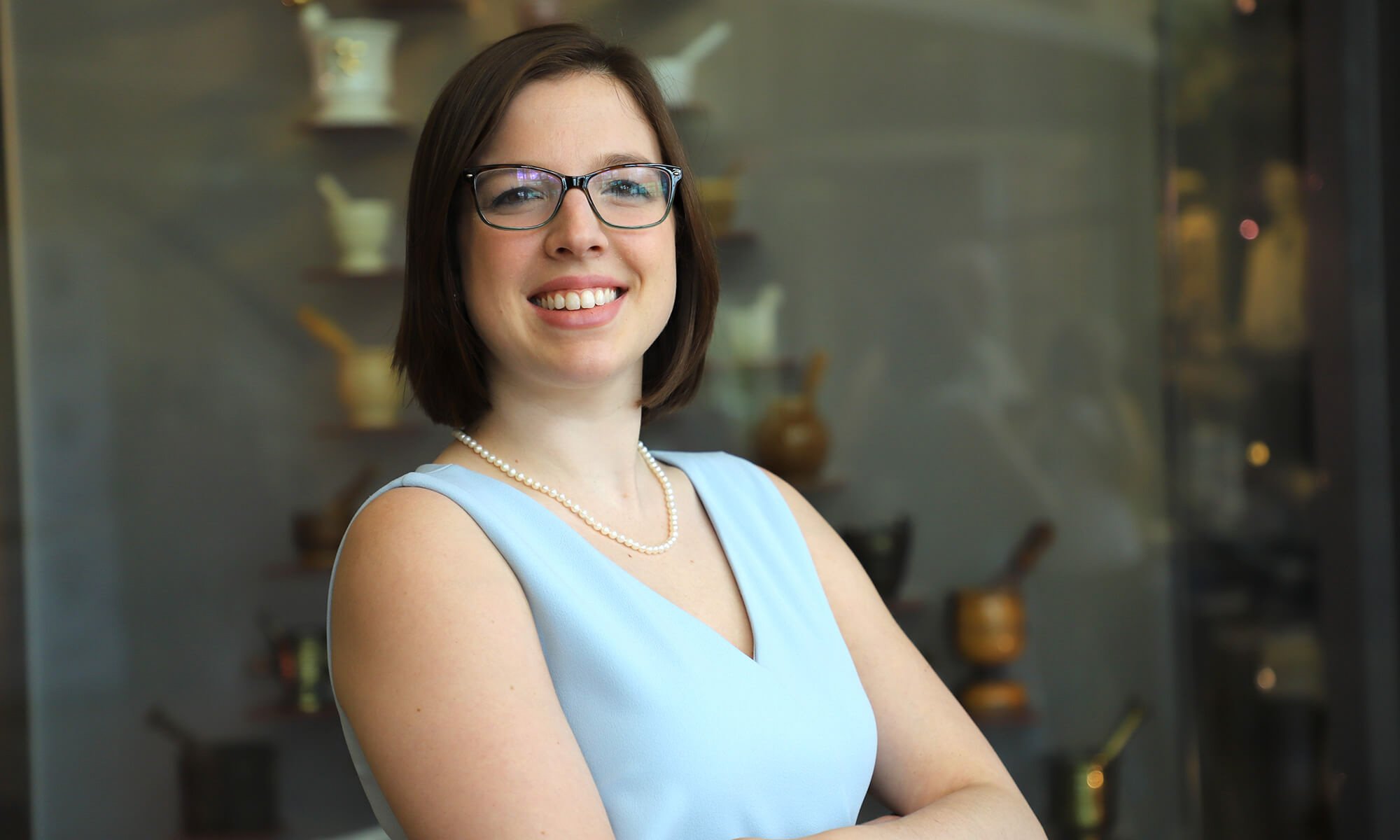
Francesca Napolitano had never stepped foot in the Midwest before she began her residency through Concordia University Wisconsin two years ago.
In pursuit of the next step after graduation from pharmacy school at Northeastern University in Boston, the Long Island native attended a national recruiting fair and learned about the residency programs offered through Concordia’s School of Pharmacy. Pharmacy residencies are optional educational experiences for licensed pharmacists that focus on the resident providing patient care and furthering their project, leadership, and teaching skills under the preceptorship of experienced pharmacists.
After talking with a Concordia representative, Napolitano liked what she heard enough to visit CUW’s website. What she found there was an articulated mission and offerings that perfectly aligned with her professional goals and personal values.
“Everything just really resonated with me, from the focus on community outreach to providing competent care from a Christian background,” Napolitano said.
So she decided to leave her East Coast roots and move to Milwaukee to begin her two-year residency through Concordia.
Related: Concordia’s School of Pharmacy beats national residency matching average—again
On Thursday evening, Napolitano and the four other CUW School of Pharmacy residents celebrated the completion of their one- or two-year professional growth experiences. The graduates will move on to positions in academia, ambulatory care, community pharmacies, or managed care settings.
Napolitano, who participated in the 24-month Practice and Academic Leadership Emphasis option, proved so useful to her second-year residency site, Progressive Community Health Centers, that they created a position for her.
With its main location at the corner of Lisbon Avenue and 35th Street in Milwaukee, the clinic’s primary focus is on serving underserved populations. During her residency, Napolitano developed services to help Progressive with their diabetes sub-populations. She estimates that about a quarter of the patients she saw were individuals who had been newly diagnosed with diabetes or who had lapsed in their care.
In addition to meeting with anywhere from six to 14 patients for a half hour or more each day, Napolitano also worked fervently to help patients who were uninsured gain access to health care. With insulin’s out-of-pocket cost hovering at $300 for just one vial (and some patients needing upwards of five vials per month), the cost for these patients without insurance was virtually impossible to afford, observed Napolitano.
Napolitano says her work at the site has been incredibly rewarding. That’s why, even though she also entertained the notion of pursuing a career in academics, she decided to stay on with Progressive when a position was offered.
Napolitano is thankful to Concordia for providing the preparation and pathway to her brand-new role.
“I’ve felt so grateful to be at a school where it feels like a family and everyone treats one another like Christians should,” Napolitano said. “Concordia professors really instilled the importance of treating patients with dignity and respect, and I’ve been able to see firsthand over this past year how much that can mean to a person. It’s been incredibly rewarding to watch the patients’ transformation from when I first saw them to once their health starts to improve.”
Learn more about Concordia’s School of Pharmacy by clicking here.
— This story is written by Kali Thiel, director of university communications for Concordia University Wisconsin and Ann Arbor. She may be reached at kali.thiel@cuw.edu or 262-243-2149.
If this story has inspired you, why not explore how you can help further Concordia's mission through giving.